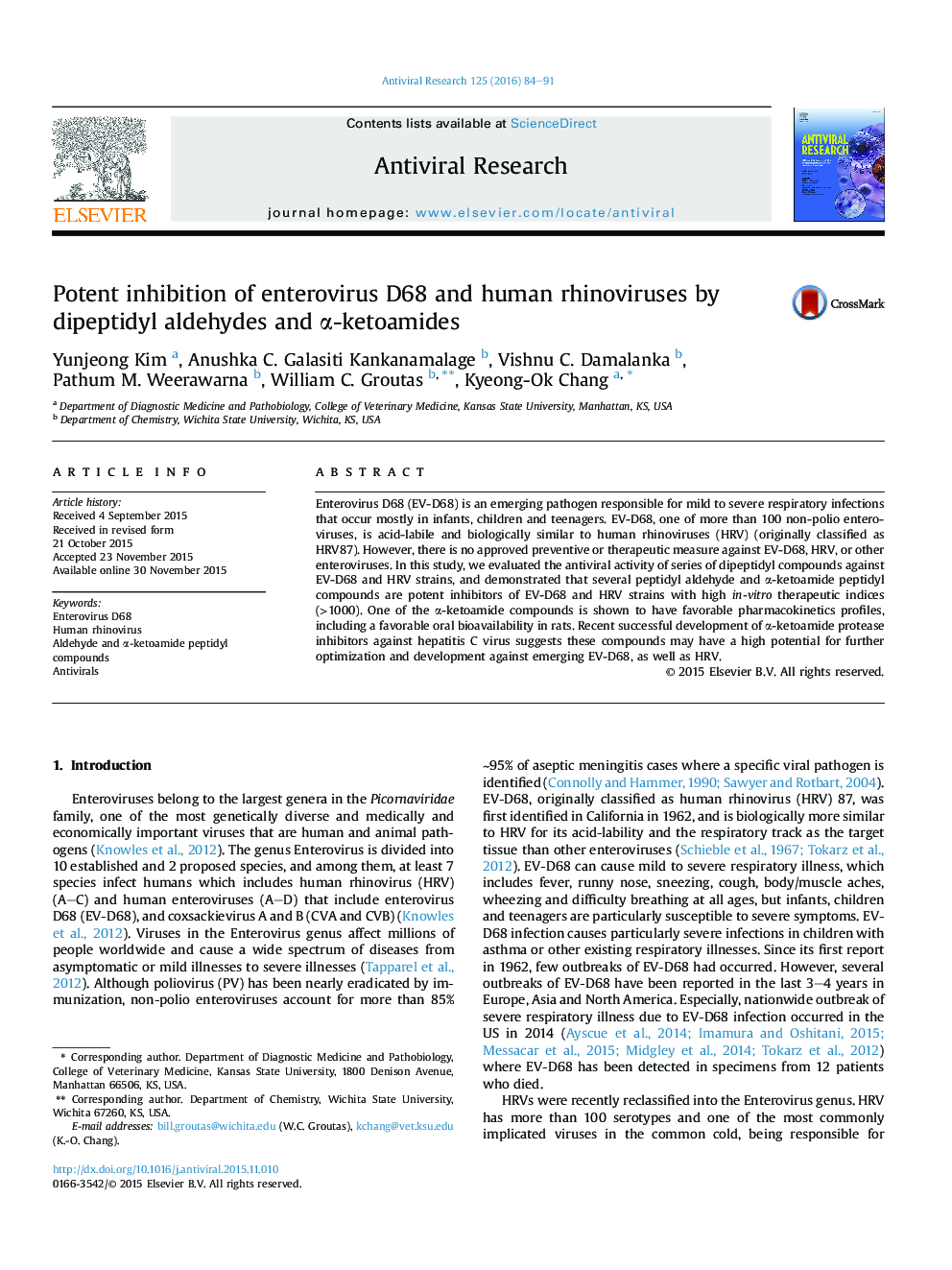| Article ID | Journal | Published Year | Pages | File Type |
|---|---|---|---|---|
| 5821989 | Antiviral Research | 2016 | 8 Pages |
â¢Series of dipeptidyl aldehyde or ketomide compounds were highly effective against enterovirus-D68 and human rhinoviruses.â¢The highly effective ketoamide compound is shown to have favorable pharmacokinetics profiles.â¢These may have a high potential for further antiviral development against emerging enterovirus-D68 and human rhinoviruses.
Enterovirus D68 (EV-D68) is an emerging pathogen responsible for mild to severe respiratory infections that occur mostly in infants, children and teenagers. EV-D68, one of more than 100 non-polio enteroviruses, is acid-labile and biologically similar to human rhinoviruses (HRV) (originally classified as HRV87). However, there is no approved preventive or therapeutic measure against EV-D68, HRV, or other enteroviruses. In this study, we evaluated the antiviral activity of series of dipeptidyl compounds against EV-D68 and HRV strains, and demonstrated that several peptidyl aldehyde and α-ketoamide peptidyl compounds are potent inhibitors of EV-D68 and HRV strains with high in-vitro therapeutic indices (>1000). One of the α-ketoamide compounds is shown to have favorable pharmacokinetics profiles, including a favorable oral bioavailability in rats. Recent successful development of α-ketoamide protease inhibitors against hepatitis C virus suggests these compounds may have a high potential for further optimization and development against emerging EV-D68, as well as HRV.
